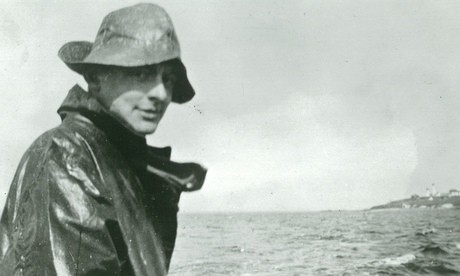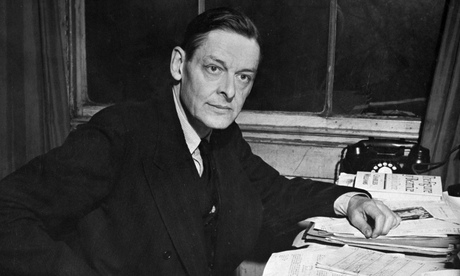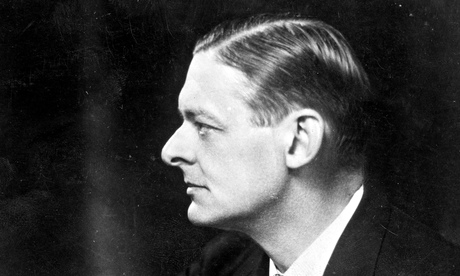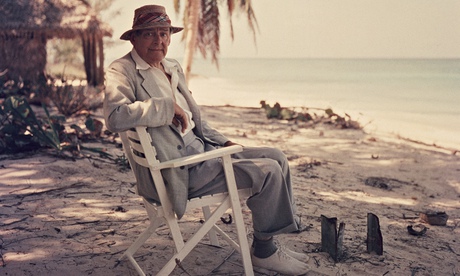The third volume of TS Eliot's letters covers 1926 and 1927, years in which the poet described his personal life as being "like a bad Russian novel". The behaviour of his wife Vivien grew increasingly erratic, and her paranoid delusions led to her being hospitalised at the Sanatorium de la Malmaison in Paris. One of the first letters in the book is from Vivien to her husband. In a frenzy of repetitions, underlinings and italics, she claims to have uncovered a plot, orchestrated by her psychiatrist, to drive her into having an affair with a masseur: "The net is being drawn bit by bit, so stealthily, so cunningly round me …" In other letters she feels persecuted by Eliot's family, and even by Eliot himself: she tells a friend that she sometimes thinks he is "mad or else that he is most frightfully & subtly wicked and dangerous. That he is a terrible menace."
In order to escape from the turmoil of his personal life, Eliot buried himself in work. The staggering amount of correspondence generated by editing the Criterion is what swells this volume to such a size. Eliot had mixed feelings about being an editor. We can hear both despair and residual pride in his financial self-sufficiency when he writes to Ezra Pound: "All reviews are worse than useless and my only excuse is that I derive the larger part of my income from this source." Elsewhere, he notes with astonishing self-awareness the emotional impulse behind his work ethic: "To have people depend on you is perhaps the most substantial and solid human relationship, in general, that there is; for you can depend on people's dependence more than on their affection."
Overworked he may have been, but as Eliot explains in a letter to a young poet: "it is not merely the time you spend with pen and paper but is as much, or more in fact, that you always keep a corner of your mind working on poetry, more or less unconsciously." The fruits of Eliot's unconscious labour in these years were strange indeed. The verse drama Sweeney Agonistes and the dramatic monologue "Journey of the Magi" seem worlds apart, but the letters show that both developed out of Eliot's understanding of his chaotic life in religious terms. The surreal burlesque of Sweeney Agonistes, with its insistent repetitions and melodramatic urgency, is eerily reminiscent of some of Vivien's letters; but, more intriguingly, in a letter to his brother, Eliot incorporates its refrain ("Birth, and copulation, and death") into a complaint about their family's Unitarian religion: "Unitarianism is a bad preparation for brass tacks like birth, copulation, death, hell, heaven and insanity: they all fall within the classification of Bad Form." The often-anthologised "Journey of the Magi" is very different, being a calm, measured work of Christian symbolism; but Eliot admitted that it too emerged from his tumultuous life: "I wrote it in three quarters of an hour after church time and before lunch one Sunday morning, with the assistance of half a bottle of Booth's gin."
Valerie Eliot and John Haffenden faced considerable challenges in editing this volume. While there is a great mass of business correspondence, there are no letters from Eliot to Vivien. (Presumably, Eliot destroyed them; the editors don't say.) Including a selection of Vivien's letters allows insights into the Eliots' unhappy marriage, but it is an inevitably partial account and the editors' policy on which letters they chose is not entirely clear. When Vivien is hospitalised for a second time at Malmaison in 1927, she all but disappears from this volume. Eliot claims that she wrote to him twice a week at this time, but none of those letters appear here.
Another significant absence is any correspondence between Eliot and Emily Hale, the woman he loved for most of his life. The reasons for this are explained in the preface to the first volume: Hale gave her collection of Eliot's letters to Princeton University Library, where they will remain under embargo until 2020. These gaps leave us with a sketchy understanding of Eliot's emotional life, which is particularly unfortunate since his least sympathetic side is so well documented. Many of his letters to Bonamy Dobrée make for painful reading, consisting as they do of racist doggerel about an invented tribe called the Bolovians and a "Bastard Jew (named Benny)". Eliot's more offhand antisemitism is equally dismaying: Laura Riding's poetry exhibits "a variety of Jewish cleverness", while Samuel Roth's unscrupulous exploitation of copyright loopholes is an example of "New York Jewish piracy".
A more textured portrait of Eliot emerges in the meticulous footnotes that Haffenden and Eliot provide. The editors draw on an array of secondary sources in order to describe key events, such as Eliot's baptism and confirmation into the Anglican church, or his taking up British citizenship. The footnotes also contain many odd, touching details: on one occasion, Eliot takes Geoffrey Faber to see a boxing match at the Albert Hall; on another, he offers to buy a cake for Virginia Woolf's visit, but she replies "No cake needed. A penny bun is what I like most of anything in the world." Such details serve to humanise Eliot, who otherwise remains a distant figure.
Eliot had dozens of correspondents but few confidants, and apart from some candid letters to his brother, and one moving expression of love and gratitude to his mother, we hear frustratingly little from the private man. Not that he would have minded: "I don't like reading other people's private correspondence in print, and I do not want other people to read mine." In a sense, this volume honours that wish, since it consists for the most part of correspondence in which Eliot cultivated his public mask. The mask is yet to slip.
• Paul Batchelor's The Sinking Road is published by Bloodaxe.









